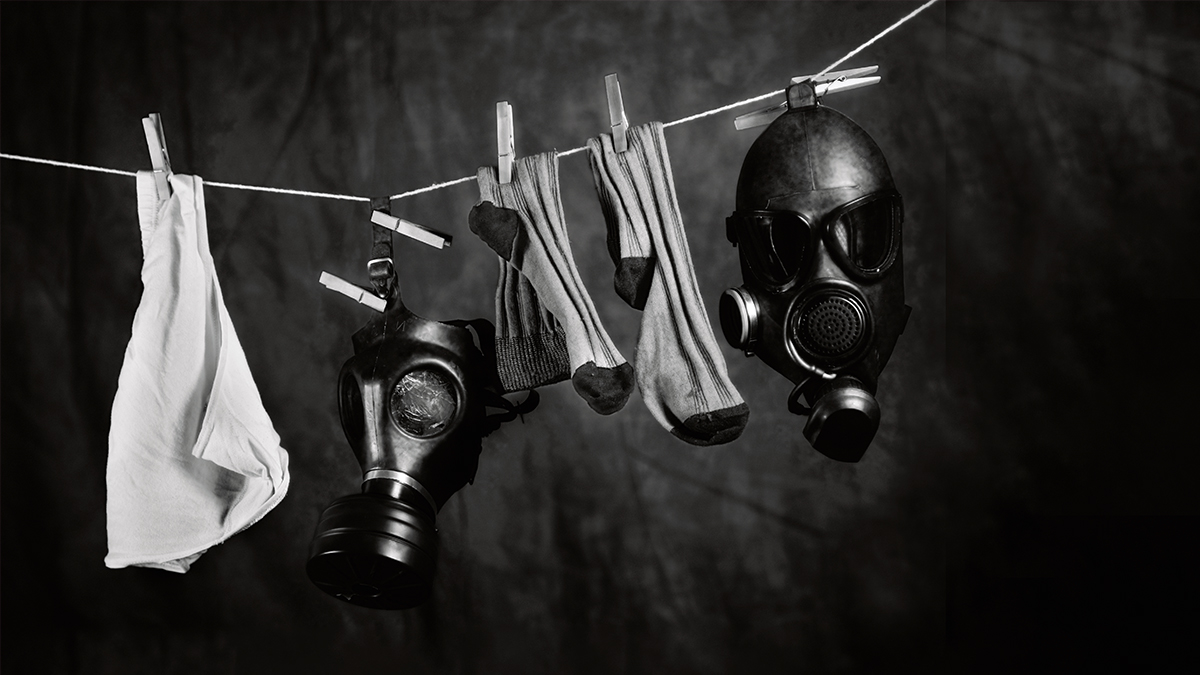Terry Maguire on how the media’s behaviour can exacerbate the panic associated with Covid-19
He almost punched the air with delight but his professionalism acted as a restraint. He had the pleasure, the honour, the responsibility to announce to the public on TV news that N Ireland had its first victim of the new plague that is Covid-19. This novel corona virus that started off life in a pangolin sold as an exotic food from a fish market in Wuhan, China, had finally reached these shores on a Thursday night. Perhaps he had lost out before. Maybe he had waited weeks and weeks to announce our first victim of Swine Flu but missed that accolade and then Zika Virus, but no-one locally contracted that. He was very junior when SARS was big news and then MERS but nobody really knew much about MERS, so it didn’t really matter. As a health correspondent, this could be the pinnacle of his career. Yet I don’t think he appreciated the sheer panic he unleased in a public, in its infinite ignorance, already very worried indeed.
Only the day before, a colleague, a neoconservative shock-jock, dedicated his fast-paced morning radio programme to worrying deficiencies in our Public Health Agency (PHA). His claim that PHA’s helpline advice was dangerously incorrect regarding Covid-19 was at best banal, but he had the airwaves. He asked how it could be that PHA was advising those just returned from Northern Italy, to “self-isolate” when that was “incorrect advice”. The correct advice was for the call-handler to tell them to telephone the GP, who would then tell them to self-isolate. In the throes of a potentially serious plague, this incompetence could cost lives, he intimated. Really?
So by Friday morning, with one person recently returned from an Italian ski-trip incarcerated in Belfast’s Royal Victoria Hospital, the public had moved from general interest in coronavirus to blind panic about Covid-19. Raising my pharmacy shutter at 9am, a group of 20 swamped the shop, demanding hand-sanitiser. Staff, still with their coats on, had to reassure that hand-washing was best in this the containment phase of the disease. Over 200 visits before lunchtime were asking for the same product. We had been out of hand sanitisers for a month following a visit from an assertive Chinese man who bought all I had before I had time to change the pricing labels. (Note to self — need to get better at profiteering).
So with little effort, our media pundits had dramatically altered human behaviour. People were doing things to protect themselves from a perceived threat, a threat that was frankly close to zero. At that time it was almost impossible to catch Covid-19 locally, short of sharing a handkerchief with the lady now imprisoned in our Health Service.
Last year in the UK, we had over 20,000 flu deaths and no-one even seemed to notice; in Northern Ireland, 2,000 smoking-related deaths, 600 alcohol and drugs-related deaths and 1,000 deaths from people being overweight and not taking enough exercise; all preventable by alternations in behaviour
And of course the fear became more bizarre and extreme as the day went on. An elderly lady, not known for her intelligent insights, was, she told us, going to Mass to pray for the Pope, whom she was convinced already suffered from Covid-19 since, at morning prayers in Rome, he blew his nose many times into the Papal hanky. This, she added, was in addition to a plague of locusts eating all the crops in Africa, all of which had been predicted in the Bible. At 4.30pm, with a few customers waiting for prescriptions, a gentleman in the queue sneezed three times, sending a middle-aged woman running screaming from the pharmacy in horror.
Friday over, Saturday was no better. Supplies of antiseptic solutions sold-out; never a bad thing in retail.
A week after notification of our first case, some sort of calm had returned but behaviour remained changed. Hand-sanitisers we did get quickly sold, in spite of a decent mark-up. The wholesale price of a single disposable face-mask on eBay is now £1, the price of a 100 box least year. We are struggling to keep stocks of antiseptic solutions and wipes and yet we are still very much in the containment phase of this novel infectious disease. India has banned exports of paracetamol, so pharmacies are panic-buying and the price is shooting up.
Then the lock-down and we all went into panic. We have worked so hard in the last week and our first death has been announced. It’s now serious, its now happening; GPs are locking patients out; we are the front line.
At this point I have no idea how things will unfold but the chance of an 80 per cent population infection and one million deaths in the UK is pretty remote. There will be infection and there will be deaths, that’s how these things work. Last year in the UK, we had over 20,000 flu deaths and no-one even seemed to notice; in Northern Ireland, 2,000 smoking-related deaths, 600 alcohol and drugs-related deaths and 1,000 deaths from people being overweight and not taking enough exercise; all preventable by alternations in behaviour. The Public Health Agency should reflect on this and how the public were influenced to quickly adopt safer behaviours. Perhaps, if they could stop sensationalising the message, TV and radio health correspondents and shock-jocks could be part of the answer.







